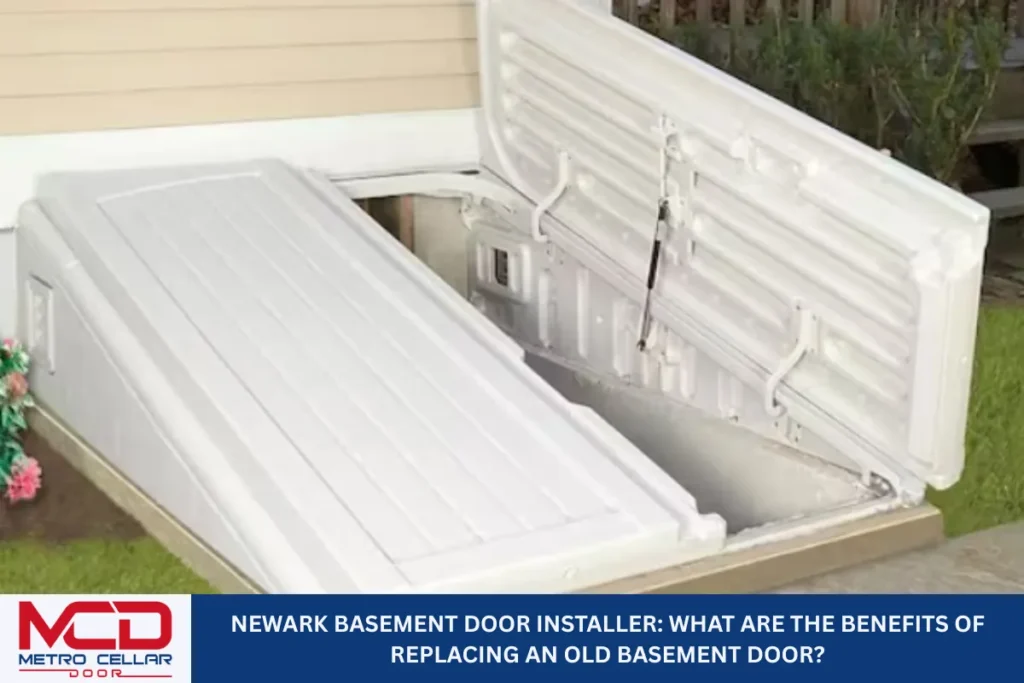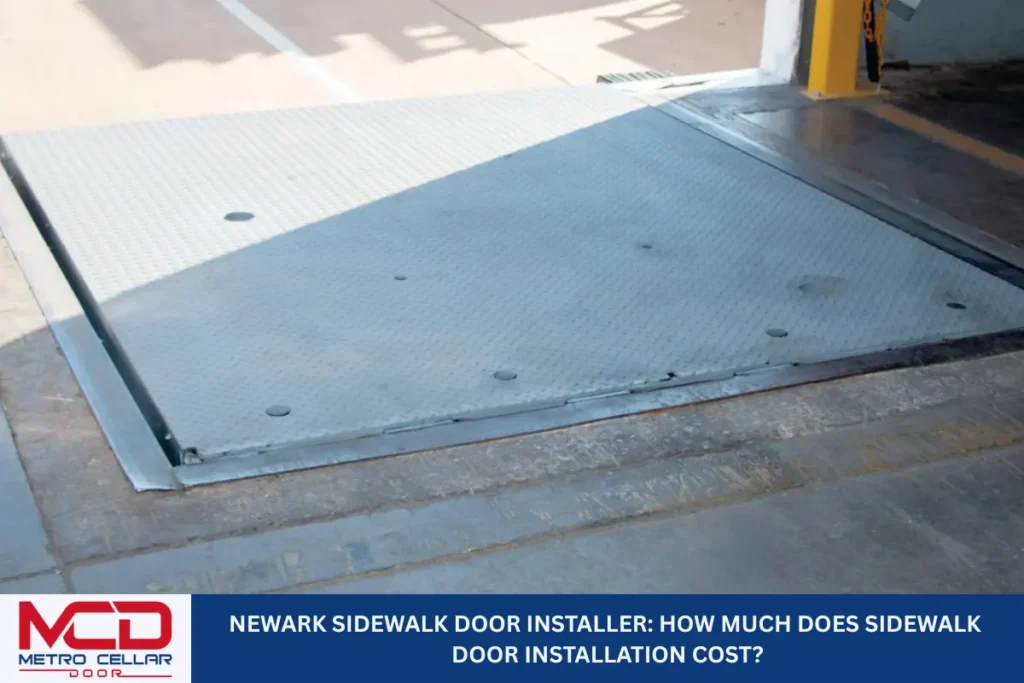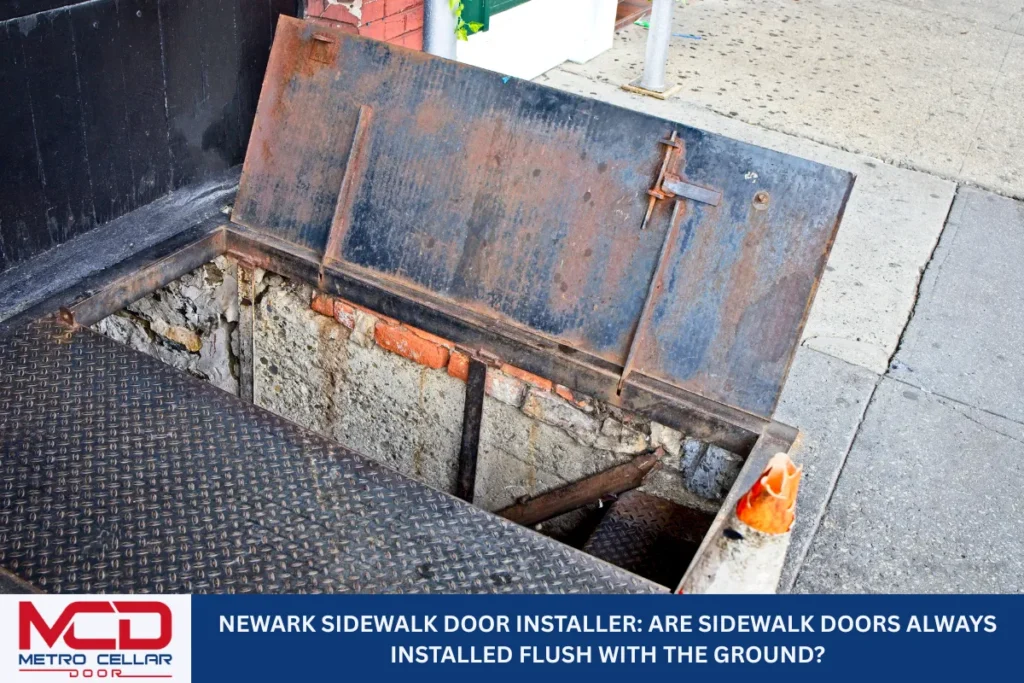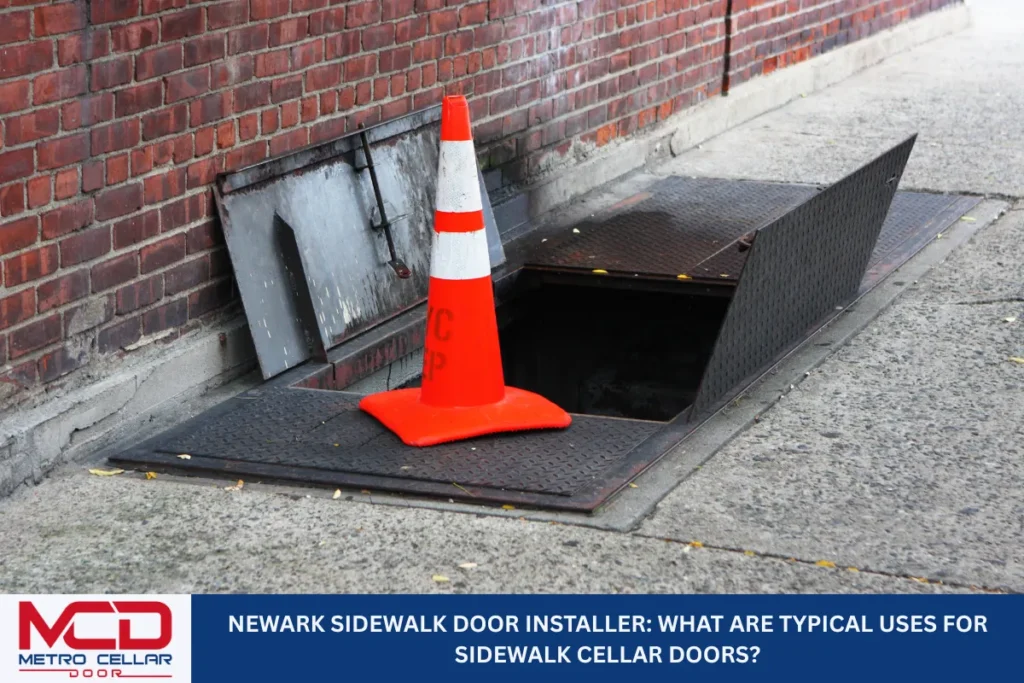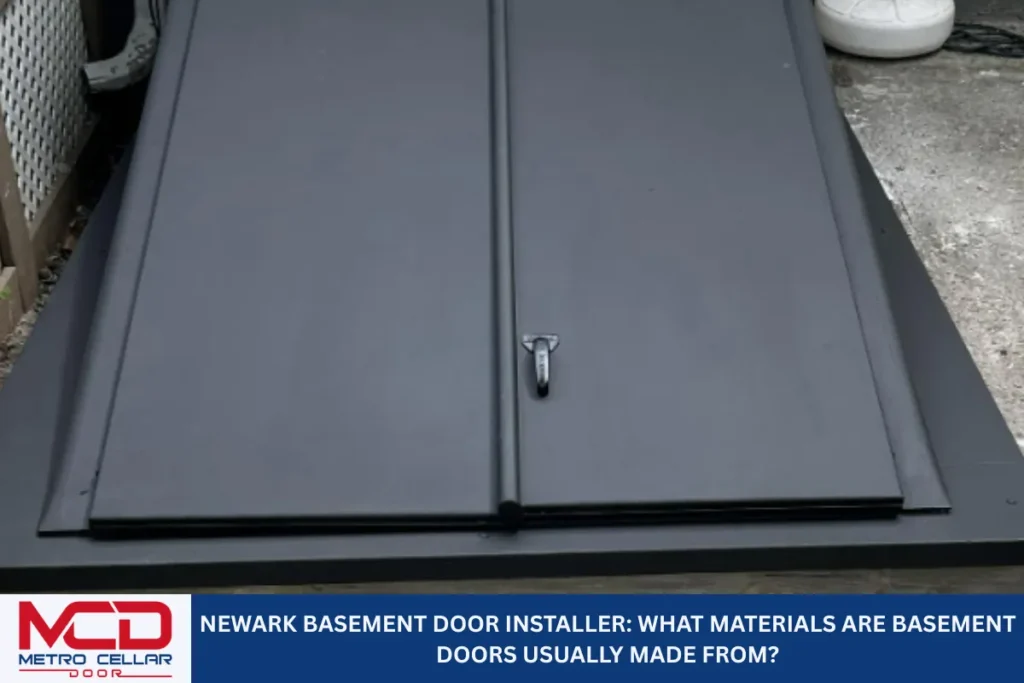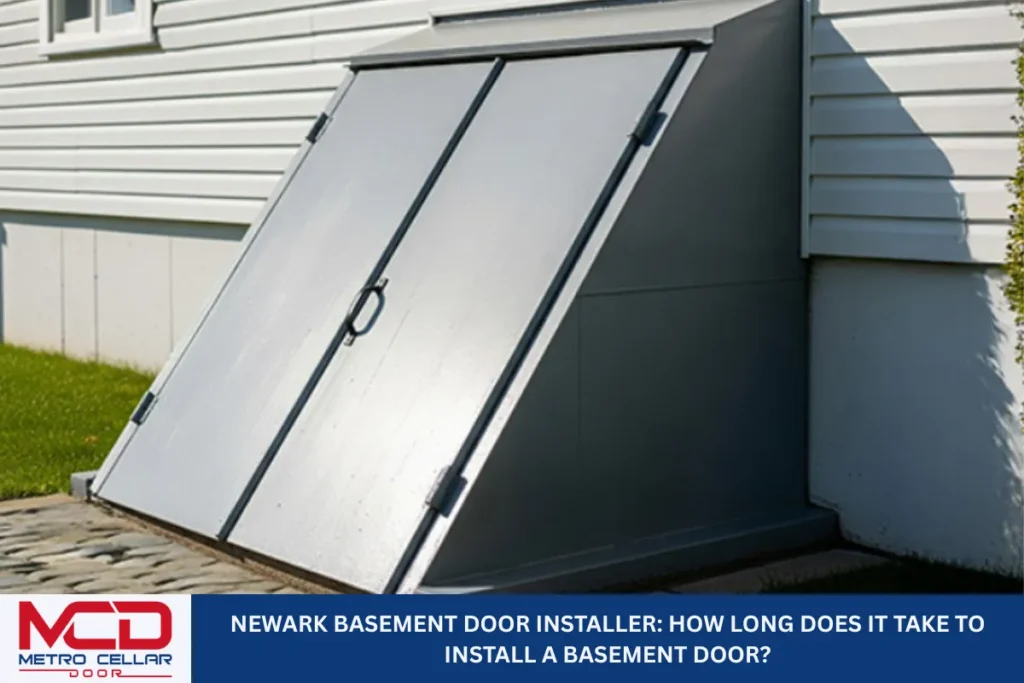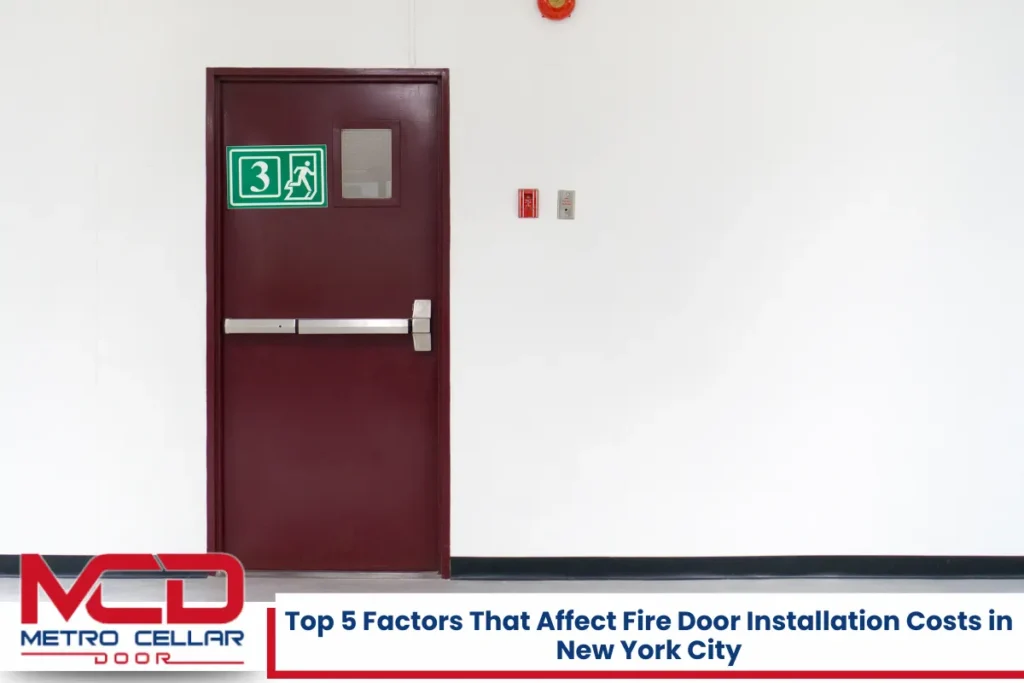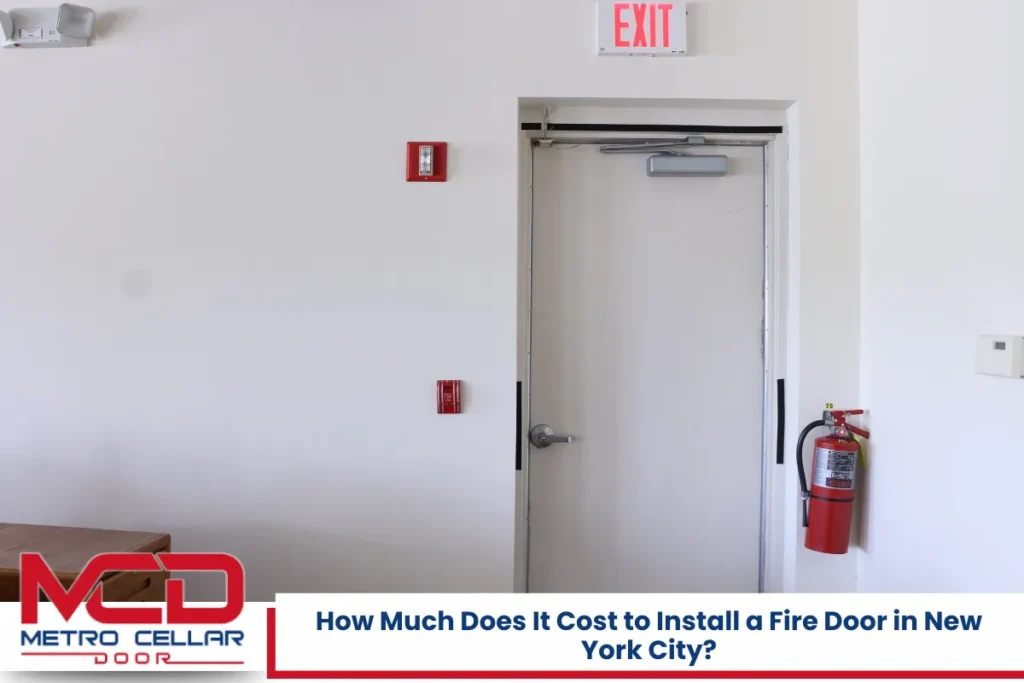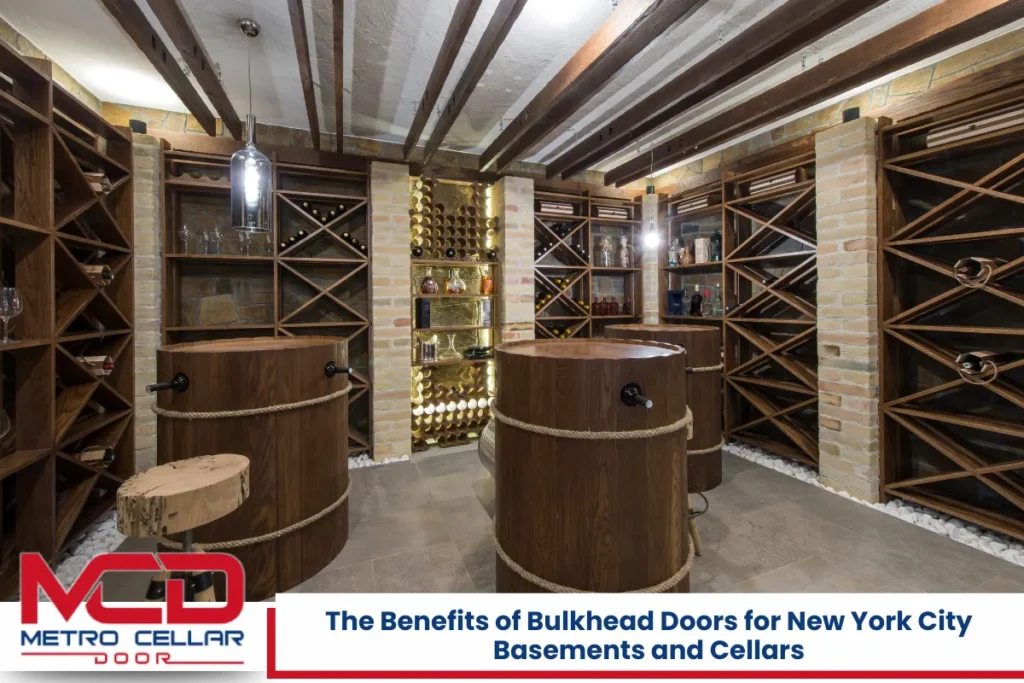In many homes across Newark, the basement door is often overlooked—despite its critical role in safety, energy efficiency, and protection against the elements. A basement door installer plays a key part in helping homeowners upgrade outdated, damaged, or inefficient doors with new, secure, and durable options. Replacing an old basement door isn’t just about aesthetics—it has real impacts on home performance and property value.
This article will guide you through the key reasons to replace your basement door, the signs that indicate it’s time for an upgrade, and what to expect during the replacement process. Each section is designed to provide you with a deeper understanding of the importance of this part of your home.
Understanding the Importance of a Basement Door

A basement door isn’t just another entryway. It serves as a barrier between your home and outdoor elements, such as rain, wind, snow, pests, and even intruders. In Newark, where the climate ranges from hot summers to cold, snowy winters, this door must do more than open and close—it must insulate, protect, and last.
Many older homes have basement doors installed decades ago that no longer perform as they should. These doors are often worn out from years of exposure to moisture and extreme temperatures. Over time, small issues such as rust, drafts, or squeaky hinges can develop into significant problems. That’s why paying attention to the condition of your basement door and knowing when to replace it is so important.
Common Problems Found in Old Basement Doors

Rust and Metal Deterioration
Rust is one of the most common issues with steel basement doors in Newark. Moisture from rain and snow accumulates over time, particularly when drainage around the basement is inadequate. Rust weakens the door’s structural integrity, making it easier for the door to warp or bend. Eventually, the hinges and locking mechanism may stop functioning properly.
Water Leaks and Moisture Damage
Basement doors that no longer seal correctly will allow water to enter during storms. This not only creates puddles or wet floors in the basement but can also lead to long-term problems, such as mold and mildew. Excess moisture can also damage your basement walls and floors, increasing the risk of costly repairs.
Poor Insulation and Drafts
Old basement doors often lack proper insulation. Cold air in the winter and hot air in the summer can easily seep in around an ill-fitting or worn-out door. This leads to temperature fluctuations in the home and higher energy bills, as heating and cooling systems have to work harder to maintain a comfortable environment.
Weak or Outdated Locks
Security is another major concern with older doors. Latches and locks installed many years ago may not meet current safety standards. A worn or rusted lock is easier to force open, leaving your home more vulnerable to break-ins or unauthorized entry.
Why Replacing a Basement Door Is Worth It
Better Home Security
Modern basement doors are constructed with sturdy materials and feature advanced locking systems. Many include internal deadbolts, tamper-resistant features, and reinforced frames. Replacing your door adds an extra layer of protection to your home, making it more difficult for anyone to gain access without a key.
Improved Energy Efficiency
Newer doors are designed to be energy-efficient. They’re often made with insulated cores that block outside air, helping your home retain heat in the winter and stay cool in the summer. This can result in noticeable savings on your energy bills throughout the year.
Higher Property Value
A new basement door is a practical home improvement project that boosts your home’s market value. When buyers or property appraisers see modern, functional upgrades, it leaves a positive impression. It indicates that the property has been properly maintained, which can positively impact its sale price or appraisal value.
Enhanced Durability
Modern doors are manufactured with weather-resistant materials that withstand Newark’s seasonal changes better. Options like galvanized steel or fiberglass resist rust, warping, and cracking, making them long-lasting and reliable.
Choosing the Right Type of Basement Door
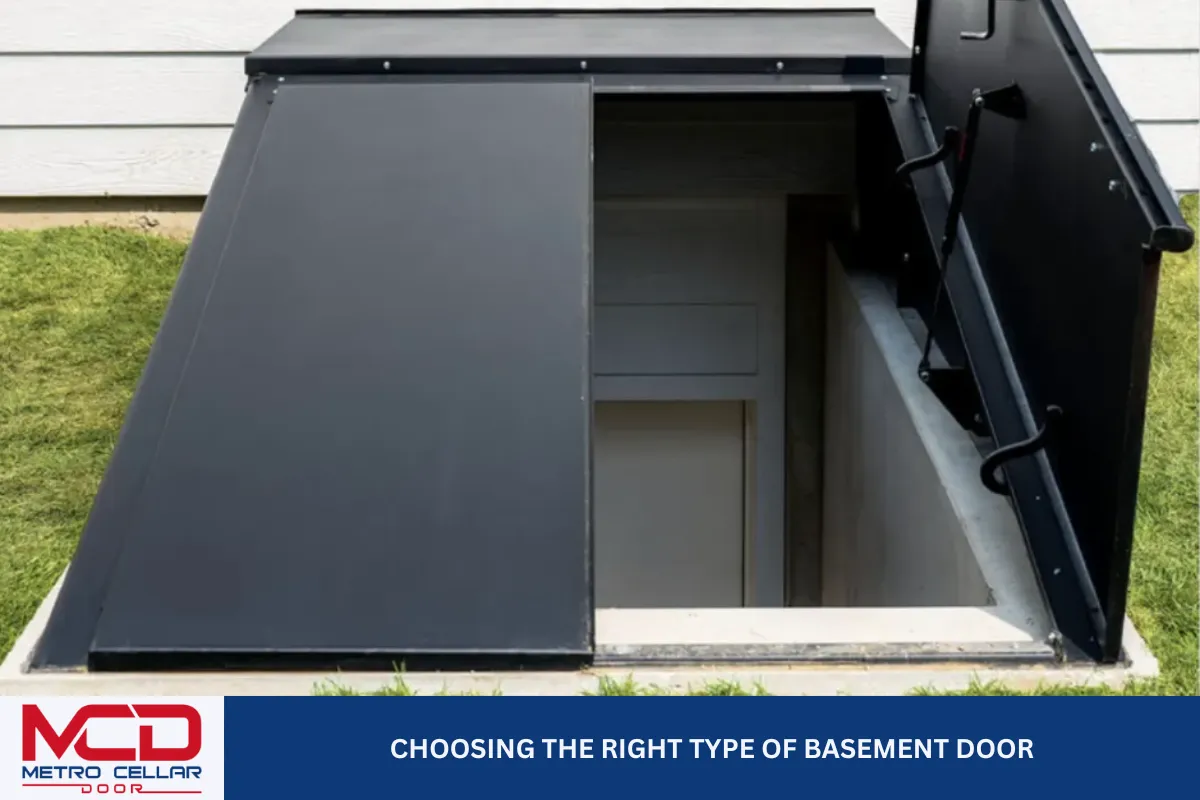
Steel Doors
Steel is known for its strength and impact resistance. It’s ideal for homeowners looking for a high level of security. When properly coated and maintained, steel doors can last many years without significant wear. They’re also a popular choice for their affordability and toughness.
Fiberglass Doors
Fiberglass is another great option. It’s moisture-resistant, doesn’t warp, and requires very little maintenance. These doors can mimic the look of wood while offering better durability in wet conditions. For homes in Newark that experience rain and snow, fiberglass is a smart and efficient choice.
Bilco-Style Hatch Doors
Bilco doors are heavy-duty, sloped, metal doors that cover stairways leading to below-grade basements. These are commonly seen in Newark homes with exterior basement access. They’re built to resist water and snow buildup while keeping intruders out. Modern Bilco doors are available in both steel and polyethylene materials for long-lasting performance.
How Professional Installers Ensure a Perfect Fit
Hiring a professional basement door installer ensures the job is done right from the start. Installers begin by assessing your existing doorway, accurately measuring its dimensions, and checking for damage around the foundation. They also ensure that the new door complies with Newark’s local building codes, which can vary depending on neighborhood zoning and historical district regulations.
Installation is more than just hanging a door—it involves sealing, leveling, and aligning all components so that the door opens and closes smoothly. High-quality caulking and weatherstripping are used to seal gaps and prevent drafts and leaks. A proper fit also ensures that locks engage securely and that the door won’t shift over time due to changes in temperature or humidity levels.
Signs It’s Time to Replace Your Basement Door
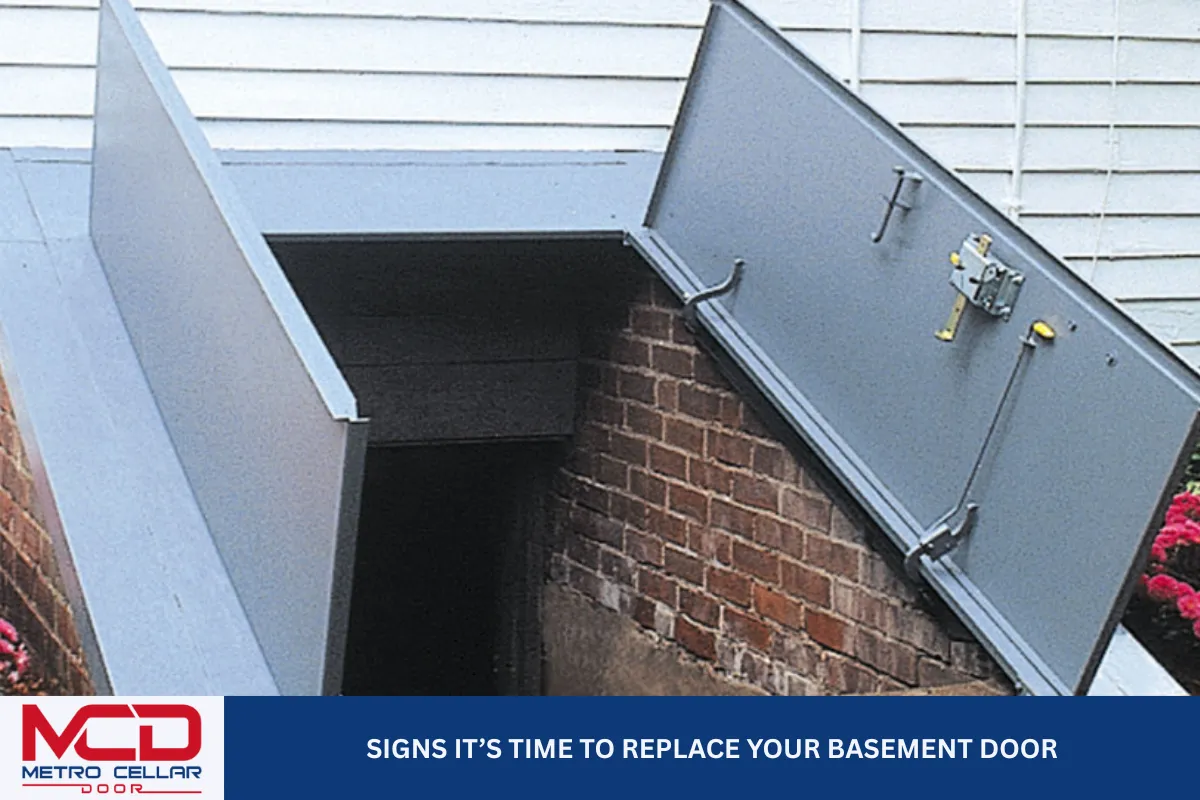
It’s not always easy to determine when a basement door needs to be replaced. Still, the signs typically become more noticeable over time. Here’s what to look out for:
- Frequent drafts coming from around the door frame.
- Visible rust, dents, or cracks on the door’s surface.
- Difficult opening or closing due to warping or misalignment.
- Increased moisture or condensation near the bottom of the door.
- Higher utility bills, especially in colder months.
- Foul odors or mold growth, which could be a result of water seepage.
If you’ve noticed one or more of these issues, it may be time to consider replacing your device.
What to Expect During Installation
Replacing a basement door is typically straightforward when handled by a professional. Here’s how it usually goes:
- Site inspection and evaluation of the current door’s condition.
- Accurate measuring to ensure the new door fits perfectly within the existing space.
- Removal of the old door, including any rotted wood or rusted metal parts.
- Installation of the new door, followed by sealing and adjusting.
- Final testing to ensure proper lock function, smooth operation, and weatherproofing.
The entire process can be completed in a day for most standard installations; however, larger or more complex projects may require additional time.
Long-Term Benefits and Maintenance
After installation, maintaining your new basement door will help it last for many years to come. Basic maintenance includes:
- Lubricating hinges and locks every six months.
- Checking seals around the frame before winter and after major storms.
- Repainting or resealing if the surface shows signs of wear.
A well-maintained basement door continues to provide energy savings, security, and protection for years to come.
A Smart Upgrade for Lasting Value
Upgrading a basement door may be a minor change. Still, its impact on your home’s overall health and efficiency is significant. From preventing water damage and reducing energy loss to improving curb appeal and home security, a new basement door is a smart investment.
Homeowners in Newark who take the step to replace old or failing basement doors enjoy not only peace of mind but also the long-term benefits of reduced maintenance costs and improved living conditions. Whether your goal is to improve safety, comfort, or property value, this improvement checks all the boxes.
Newark Basement Door Installer – Metro Cellar Door Bilco Pro
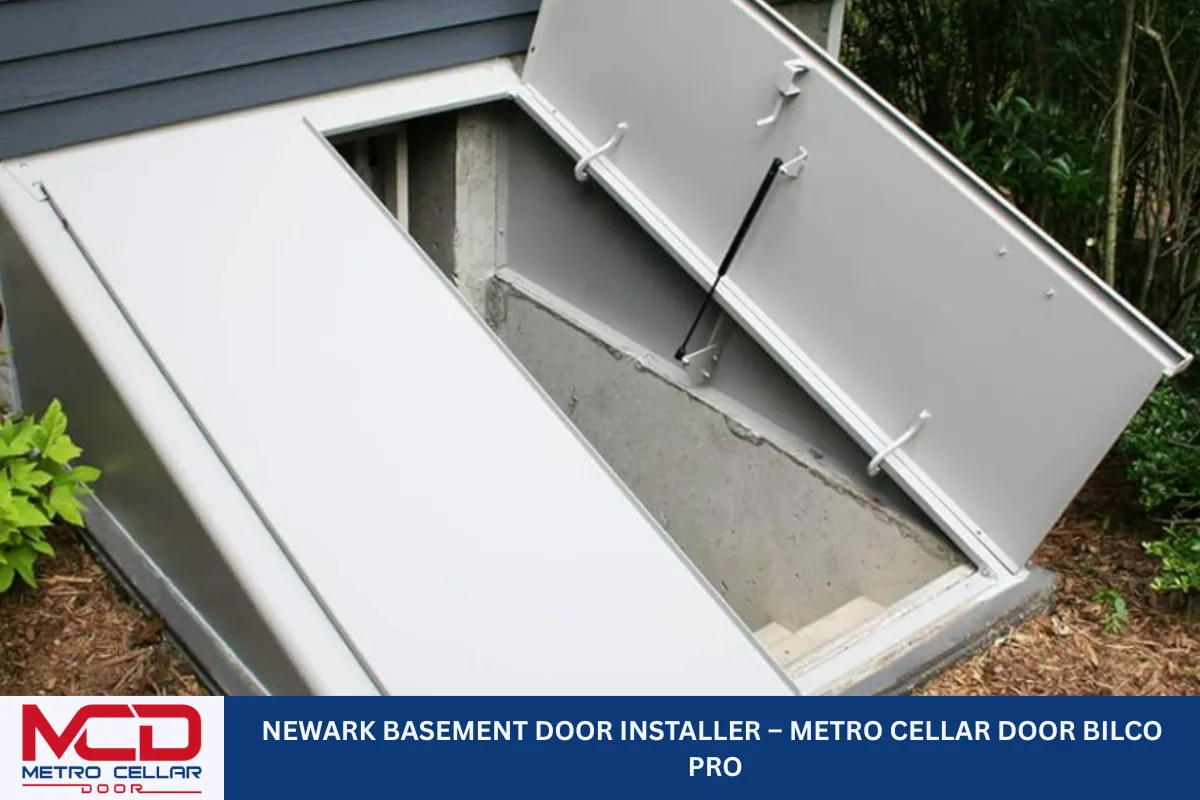
Metro Cellar Door Bilco Pro offers reliable, affordable basement door solutions for residential and commercial properties. Our team provides professional installation services, specializing in secure, weather-resistant, and long-lasting door replacements tailored to homes in Newark.
We take pride in delivering high-quality workmanship at competitive prices. Whether you need a fire-rated door, a new Bilco-style hatch, or a sidewalk cellar door, our experts are ready to help. Contact us today at (929) 979-7313 for a complimentary estimate and discover how our custom fabrication services can meet your specific needs!
Frequently Asked Questions (FAQ) About Basement Doors and Replacements
What type of basement door is most effective in preventing water infiltration and damage?
Choosing the right basement door to prevent water infiltration and long-term water damage depends on your home’s structure and exposure to the elements. Here’s what to consider:
- Steel doors are a top choice due to their exceptional durability and strength. They resist forced entry and, when properly sealed, offer excellent protection against water.
- Bilco doors, often used as bulkhead doors, are ideal for sloped exterior entrances. These feature overlapping flanges and gasket seals that help divert rainwater away from the entry point.
- Fiberglass doors offer excellent insulating properties and resist rot, swelling, and warping, particularly in damp environments.
- Apply a rust-inhibiting primer and finish with waterproof paint to prolong the life of metal basement doors.
- Installing door grilles or drainage trenches around cellar doors can further prevent moisture from pooling.
A properly fitted and professionally sealed door can prevent leaks and significantly increase your home’s value by protecting the interior from damage.
How does replacing a basement door affect my home’s energy consumption?
Replacing an outdated basement door can significantly reduce energy consumption and improve overall comfort. Here’s how:
- Air sealing: Modern basement doors are designed to close tightly, preventing drafts and reducing the stack effect—a phenomenon in which warm air rises and pulls cold air into lower levels, such as the basement.
- Insular materials: Fiberglass and high-quality steel doors feature insulating cores that help reduce heat loss.
- Prevents heat load on your HVAC system, meaning your heat pump, oil furnace, or ductless air-source heat pump won’t have to work as hard.
- Enhances control of humidity and indoor temperature, especially in basements housing systems like a water heater or return duct.
- Improved air quality: By keeping out mold-causing moisture and pollutants, newer doors help maintain better indoor air.
Overall, a proper door replacement minimizes temperature fluctuation, lowers utility bills, and reduces wear and tear on your duct system and heat ducts.
Are wooden basement doors a suitable option for homes in Newark?
Wooden doors can be visually appealing and budget-friendly. Still, in Newark’s variable climate, they may not always be the best long-term solution for basements. Here’s why:
- Wood absorbs moisture, which can lead to warping, swelling, and even Rust and corrosion on hinges or fasteners over time.
- Without regular treatment, wood is more susceptible to water infiltration, especially in damp or low-lying areas.
- To extend their lifespan, wooden cellar doors should be treated with sealants, maintained with a rust-inhibiting primer on metal hardware, and elevated if possible to avoid pooling water.
- Unlike fiberglass or steel doors, wood lacks strong insulating properties and may contribute to higher energy consumption.
- A wooden crawl space door or bulkhead might work in a covered area, but it isn’t ideal for direct exposure to Newark’s rain and snow.
If aesthetics are a priority, consider adding frosted glass inserts or door grilles to a more durable material, such as steel, for a blend of style and function.
What are bulkhead doors, and when should they be replaced?
Bulkhead doors—also known as Bilco doors—are sloped doors that provide outdoor access to the basement, typically via a stairwell. These are common in older Newark homes and serve both functional and safety purposes.
You should consider a bulkhead replacement or a basement bulkhead replacement if:
- The doors show visible signs of rust and corrosion.
- Water leaks into the stairwell or basement during storms.
- The doors no longer align properly or open easily.
- The structure underneath (whether concrete or a wood frame) is deteriorating.
Key replacement benefits include:
- Enhanced protection from water infiltration.
- Improved air sealing to reduce the home’s heat load.
- Boosted resale value and better property values due to modern, secure access.
- Upgrades to steel, fiberglass, or coated metal options offer better durability and noise reduction.
When professionally installed, a new bulkhead or Bilco door can last 20–30 years with minimal maintenance.
What is the installation process like for a new basement door?
The installation process for a basement door varies depending on whether it’s a standard door, bulkhead, or custom cellar door, but the general steps are as follows:
- Assessment: A qualified basement door installer evaluates the current structure, including the condition of the frame and the type of door (e.g., sliding glass, hatch, or solid panel).
- Measurement and planning: Accurate sizing is critical, especially for sloped entries or irregular wall openings.
- Removal: The old door is carefully dismantled, ensuring no damage to masonry or the surrounding frame.
- Frame repair or prep: If rot or rust is present, the installer may reinforce or replace parts of the surrounding wall or sill.
- Installation: The new steel, fiberglass, or wooden door is fitted and secured using heavy-duty fasteners.
- Sealing and finishing: Edges are sealed to prevent backdrafting issues, air leaks, and water infiltration.
- Final testing: Ensures smooth operation, secure locking, and weatherproofing.
A professionally completed install can improve air quality, minimize energy consumption, and support the performance of your duct system and heating equipment.
Read more: How to Choose the Best Fire Door Installer in New York City: What Homeowners Should Know

